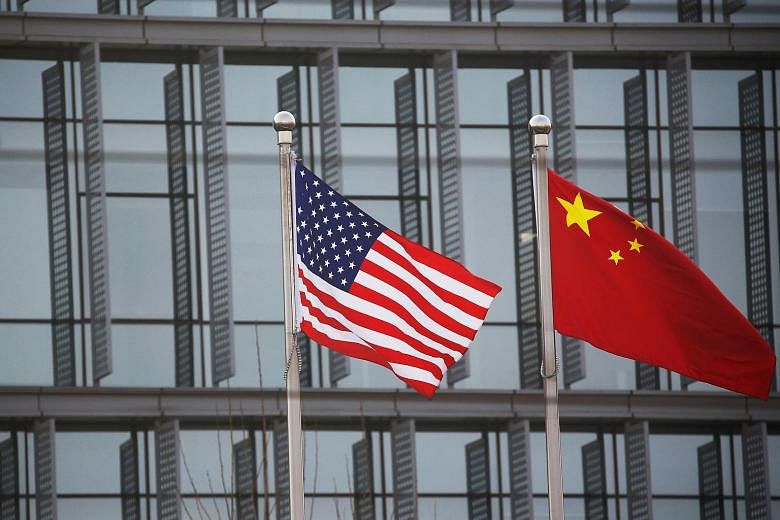NEW YORK (BLOOMBERG) - A technological decoupling between the United States and China, and potentially Europe, would cut global gross domestic product (GDP) by an order of magnitude greater than the recent trade war, a senior International Monetary Fund official warned.
"The world is such an integrated place," Mr Helge Berger, head of the fund's China mission, said in an interview with Bloomberg Television on Friday (April 16). "If you stop exchanging knowledge across countries or borders, you will ultimately pay a price, and this could be fairly high."
IMF research estimates that technological fragmentation could lead to losses of around 5 per cent of GDP for many countries, or about 10 times the estimated costs of trade tariffs imposed by the US and China.
The warning comes after the Biden administration earlier this month added seven Chinese supercomputing firms to the list of entities that US businesses can't sell to without special permission.
It was an expansion of the crackdown that began under former president Donald Trump with curbs on exports to companies such as Huawei Technologies.
The Biden team is still reviewing the China policies it inherited from Mr Trump - including tariffs on more than US$300 billion (S$400 billion) in annual imports, and a partial trade deal - but has indicated that its strategy will be broadly similar.
"The tensions around the US-China relationship are one of the risk factors that we look at," Mr Berger said. "This is a constant concern."
Tariffs between the two countries subtracted from growth last year and will do so again this year, he said, estimating the global impact at about 0.4 per cent of GDP.
"But things could become more difficult if we allow technological decoupling to take place between the US and China, between other countries like Europe," he said.
"So it is important that these two large, very important economies that are such a large part of where the global economy goes, find a way to work together."

